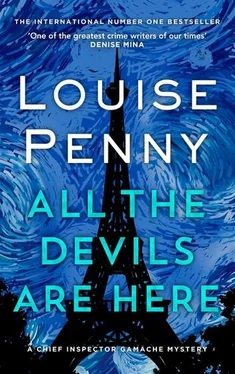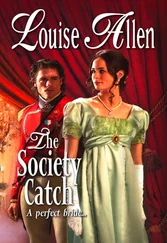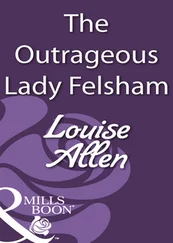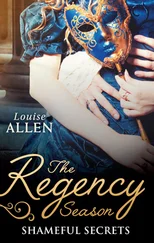Louise Penny is the number one New York Times bestselling author of the bestselling Chief Inspector Gamache series, including Still Life , which won the CWA John Creasey Dagger in 2006. Recipient of virtually every existing award for crime fiction, Louise was also granted The Order of Canada in 2014. She lives in a small village south of Montréal.
The Gamache series
Still Life
A Fatal Grace
( prev. UK: Dead Cold )
The Cruellest Month
A Rule Against Murder
( prev. UK: The Murder Stone )
The Brutal Telling
Bury Your Dead
A Trick of the Light
The Beautiful Mystery
How the Light Gets In
The Long Way Home
The Nature of the Beast
A Great Reckoning
Glass Houses
Kingdom of the Blind
A Better Man
All the Devils Are Here
Copyright
Published by Sphere
ISBN: 978-0-7515-7925-3
All characters and events in this publication, other than those clearly in the public domain, are fictitious and any resemblance to real persons, living or dead, is purely coincidental.
Copyright © Three Pines Creations, Inc 2020
The moral right of the author has been asserted.
Excerpts from ‘Sekhmet, the Lion-Headed Goddess of War, Violent Storms, Pestilence & Recovery from Illness, Contemplates the Desert in the Metrop’ from Morning in the Burned House: New Poems by Margaret Atwood. Copyright © 1995 by Margaret Atwood. Reprinted by permission of Houghton Mifflin Harcourt Publishing Company. All rights reserved.
Excerpts from Vapour Trails by Marylyn Plessner (2000). Used by permission of Stephen Jarislowsky.
All rights reserved. No part of this publication may be reproduced, stored in a retrieval system, or transmitted, in any form or by any means, without the prior permission in writing of the publisher.
The publisher is not responsible for websites (or their content) that are not owned by the publisher.
Sphere
Little, Brown Book Group
Carmelite House
50 Victoria Embankment
London EC4Y 0DZ
www.littlebrown.co.uk
www.hachette.co.uk
Contents
About the Author
The Gamache series
Copyright
Dedication
Chapter 1
Chapter 2
Chapter 3
Chapter 4
Chapter 5
Chapter 6
Chapter 7
Chapter 8
Chapter 9
Chapter 10
Chapter 11
Chapter 12
Chapter 13
Chapter 14
Chapter 15
Chapter 16
Chapter 17
Chapter 18
Chapter 19
Chapter 20
Chapter 21
Chapter 22
Chapter 23
Chapter 24
Chapter 25
Chapter 26
Chapter 27
Chapter 28
Chapter 29
Chapter 30
Chapter 31
Chapter 32
Chapter 33
Chapter 34
Chapter 35
Chapter 36
Chapter 37
Chapter 38
Chapter 39
Chapter 40
Chapter 41
Chapter 42
Chapter 43
Chapter 44
Chapter 45
Acknowledgements
To Hope Dellon,
a great editor, an even better friend.
Goodness Exists
CHAPTER 1
Hell is empty, Armand,” said Stephen Horowitz.
“You’ve mentioned that. And all the devils are here?” asked Armand Gamache.
“Well, maybe not here, here”—Stephen spread his expressive hands—“exactly.”
“Here, here” was the garden of the Musée Rodin, in Paris, where Armand and his godfather were enjoying a quiet few minutes. Outside the walls they could hear the traffic, the hustle and the tussle of the great city.
But here, here, there was peace. The deep peace that comes not just with quiet, but with familiarity.
With knowing they were safe. In the garden. In each other’s company.
Armand passed his companion a tartelette au citron and glanced casually around. It was a warm and pleasant late-September afternoon. Shadows were distancing themselves from the trees, the statues, the people. Elongating. Straining away.
The light was winning.
Children ran free, laughing and racing down the long lawn in front of the château. Young parents watched from wooden benches, their planks turned gray over the years. As would they, eventually. But for now they relaxed, grateful for their children, and very grateful for the few minutes away from them in this safe place.
A less likely setting for the devil would be hard to imagine.
But then, Armand Gamache thought, where else would you find darkness but right up against the light? What greater triumph for evil than to ruin a garden?
It wouldn’t be the first time.
“Do you remember,” Stephen began, and Armand turned back to the elderly man beside him. He knew exactly what he was about to say. “When you decided to propose to Reine-Marie?” Stephen patted their own bench. “Here? In front of that.”
Armand followed the gesture and smiled.
It was a familiar story. One Stephen told every chance he got, and certainly every time godfather and godson made their pilgrimage here.
It was their best-loved place in all of Paris.
The garden on the grounds of the Musée Rodin.
Where better, the young Armand had thought many years earlier, to ask Reine-Marie to marry him? He had the ring. He’d rehearsed the words. He’d saved up six months of his measly salary as a lowly agent with the Sûreté du Québec for the trip.
He’d bring the woman he loved best, to the place he loved best. And ask her to spend the rest of her life with him.
His budget wouldn’t stretch to a hotel, so they’d have to stay in a hostel. But he knew Reine-Marie wouldn’t mind.
They were in love and they were in Paris. And soon, they’d be engaged.
But once again, Stephen had come to the rescue, lending the young couple his splendid apartment in the Seventh Arrondissement.
It wasn’t the first time Armand had stayed there.
He’d practically grown up in that gracious Haussmann building, with its floor-to-ceiling windows looking out over the Hôtel Lutetia. The vast apartment had herringbone wood floors and marble fireplaces and tall, tall ceilings, making each room light and airy.
It was an inquisitive child’s paradise, with its nooks and crannies. The armoire with the fake drawers made, he was sure, just for a little boy to hide in. There were assorted treasures to play with, when Stephen wasn’t looking.
And furniture perfect for jumping on.
Until it broke.
Stephen collected art, and each day he’d choose one piece and tell his godson about the artists and the work. Cézanne. Riopelle and Lemieux. Kenojuak Ashevak.
With one exception.
The tiny watercolor that hung at the level of a nine-year-old’s eye. Stephen never talked about it, mostly because, he’d once told Armand, there wasn’t much to say. It wasn’t exactly a masterpiece, like the others. Yet there was something about this particular work.
After a day out in the great city, they’d return exhausted, and while Stephen made chocolat chaud in the cramped kitchen, young Armand would drift over to the paintings.
Inevitably, Stephen would find the boy standing in front of the small watercolor, looking into the frame as though it was a window. At the tranquil village in the valley.
“That’s worthless,” Stephen had said.
But worthless or not, it was young Armand’s favorite. He was drawn back to it on every visit. He knew in his heart that anything that offered such peace had great value.
And he suspected his godfather thought so, too. Otherwise he’d never have hung it with all the other masterpieces.
At the age of nine, just months after both Armand’s parents had been killed in a car accident, Stephen had brought the boy to Paris for the first time. They’d walked together around the city. Not talking, but letting the silent little boy think his thoughts.
Читать дальше












